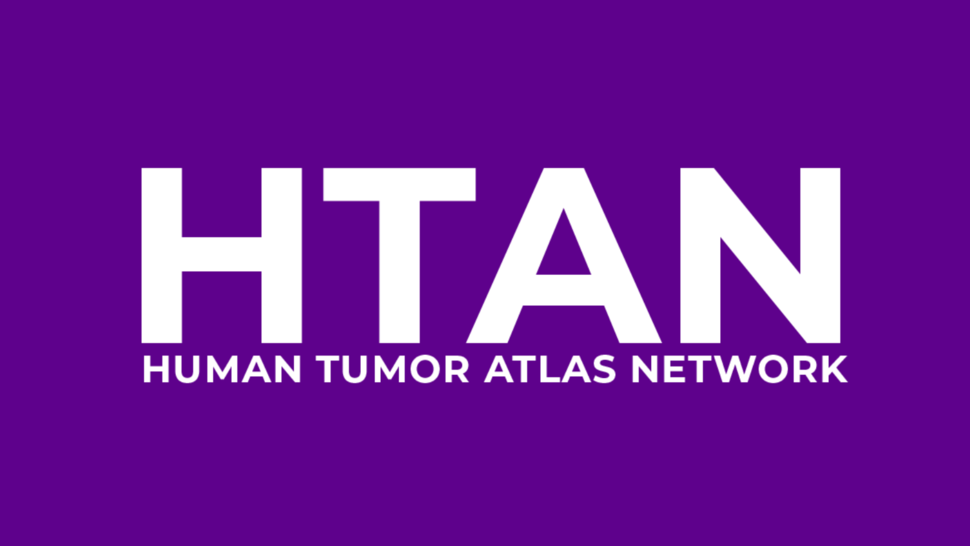Impact of the Generation of Human Tumor Atlases
One of the recommendations of the Blue Ribbon Panel Report that led to the launch of the Cancer Moonshot was the generation of human tumor atlases to map the dynamic architecture of tumors, model cancer progression, advance the understanding of therapeutic resistance, be used as resources for cancer research, and enable predictive modeling for cancer patients.
HTAN has supported the generation and sharing of human tumor atlases showing multidimensional cancer evolution.
Highlights of research advances from this program (which was initially funded through the Cancer Moonshot) include:
- Developed innovative imaging and sequencing technologies, computational analysis tools, and resources to build detailed, single-cell resolution atlases.
- Generated 14 human tumor atlases across 66 organs to advance the understanding, prevention, and treatment of cancer.
- Created the HTAN Data Portal, which allows the broader research community to use and integrate HTAN data for their own research.
- Developed best practices and methods for tissue/biospecimen and data collection, as well as the sharing of cancer research data and samples.
Along with recent progress in mapping cancers, HTAN is continuing to develop new technologies, approaches, and human tumor atlases that will be clinically useful for all populations.
HTAN News
In the fall of 2024, HTAN investigators published a collection of research studies, methods, and data related to the exploration of tumor evolution in space and time.
HTAN Data Portal
The HTAN Data Portal contains the latest available resources generated through HTAN, including:
- Human tumor atlases
- Data analysis tools
- Protocols
- Data standards
- Publications
DCB Contacts for HTAN
For additional information about HTAN, please contact Dr. Shannon Hughes or Dr. Sharmistha Ghosh-Janjigian.
Funded Projects: HTAN Phase 2
Human Tumor Atlas (HTA) Research Centers (U01s) [supported by DCB & DCTD]
| Institution | Principal Investigator(s) | Center Title |
|---|---|---|
| Children's Hospital of Los Angeles | Shahab Asgharzadeh, James F. Amatruda, Long Cai | Pediatric Solid Tumor Microenvironment Atlas |
| MD Anderson Cancer Center | Samuel C. Mok, Michael Birrer, Sammy Ferri-Borgogno | 3D Spatial Multi-Omics Profiling of Ovarian Cancer |
| Vanderbilt University | Ken S. Lau, Jeffrey M. Spraggins | A Multimodal 3D Atlas of Colorectal Cancer Across Ages of Onset |
| Washington University in St. Louis | Li Ding, Feng Chen, Ryan C. Fields, Russell K. Pachynski | Human Prostate Tumor Atlas Center |
| Yale University | Rong Fan, Stephanie Halene, Zongming Ma, Mina L. Xu | Center for Human Lymphoma Spatiotemporal Atlas (HuLymSTA) |
Pre-Cancer Atlas (PCA) Research Centers (U01s) [supported by DCP]
| Institution | Principal Investigator(s) | Center Title |
|---|---|---|
| California Institute of Technology | Cai Long, Richard G. Everson, Matthew W. Thomson, Barbara J. Wold | Understanding the Role of Tumor Microenvironment in Low Grade Glioma Progression to Malignancy |
| Dana-Farber Cancer Institute | Irene M. Ghobrial | Myeloma Multidimensional Precancer Atlas |
| MD Anderson Cancer Center | Linghua Wang, Tae H. Hwang, Mingyao Li, Paul F. Mansfield | Center for Gastric Pre-Cancer Atlas of Multidimensional Evolution in 3D (GAME3D) |
| Oregon Health & Science University | Rosalie C. Sears, Jonathan Brody, Elana J. Fertig, Laura D. Wood | An Atlas of Pancreatic Tumorigenesis in the Context of Altered DNA Repair Occurring in High-Risk Individuals |
| University of California, San Francisco | Alan H. Shain, Boris C. Bastian, Iwei Yeh | Pre-cancer Atlas of Skin Cancer |
HTAN Data Coordinating Center (U24)
| Institution | Principal Investigator(s) | Center Title |
|---|---|---|
| Dana-Farber Cancer Institute | Ethan Cerami, Nikolaus Schultz, Adam J. Taylor, Vesteinn Thorsson | Human Tumor Atlas Network: Data Coordinating Center |
Funded Projects: HTAN Phase 1
Human Tumor Atlas (HTA) Research Centers (U2Cs)
| Institution | Principal Investigator(s) | Center Title |
|---|---|---|
| Children's Hospital of Philadelphia | Kai Tan, Stephen P. Hunger | Center for Pediatric Tumor Cell Atlas |
| Dana-Farber Cancer Institute | Eliezer M. Van Allen | The Cellular Geography of Therapeutic Resistance in Cancer |
| Memorial Sloan-Kettering Cancer Center | Dana Pe'er, Christine A. Iacobuzio-Donahue | Transition to Metastatic State: Lung Cancer, Pancreatic Cancer and Brain Metastasis |
| Oregon Health & Science University | Emek Demir, Gordon B. Mills, George V. Thomas | Omic and Multidimensional Spatial Atlas of Metastatic Breast and Prostate Cancers |
| Washington University in St. Louis | Li Ding, Samuel Achilefu, Ryan C. Fields, William E. Gillanders | Washington University Human Tumor Atlas Research Center |
Pre-Cancer Atlas (PCA) Research Centers (U2Cs)
| Institution | Principal Investigator(s) | Center Title |
|---|---|---|
| Boston University Medical Campus | Avrum E. Spira, Steven M. Dubinett | The Lung PCA: A Multi-Dimensional Atlas of Pulmonary Premalignancy |
| Duke University | Eun-Sil Shelley Hwang, Carlo Maley, Robert B. West | Breast Pre-Cancer Atlas Center |
| Harvard Medical School | Peter K. Sorger, Jon C. Aster, Sandro Santagata | Pre-Cancer Atlases of Cutaneous and Hematologic Origin (PATCH Center) |
| Stanford University | Michael Snyder, James M. Ford | PreCancer Atlas of Familial Adenomatous Polyposis |
| Vanderbilt University Medical Center | Robert J. Coffey, Ken Lau, Martha J. Shrubsole | Integrative Single-Cell Atlas of Host and Microenvironment in Colorectal Neoplastic Transformation |
HTAN Data Coordinating Center (U24)
| Institution | Principal Investigator(s) | Center Title |
|---|---|---|
| Dana-Farber Cancer Institute | Ethan Cerami, James A. Eddy, Nikolaus Schultz, Vesteinn Thorsson | Human Tumor Atlas Network: Data Coordinating Center |


